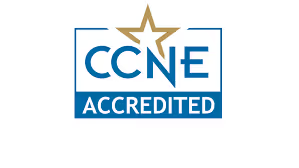Understanding Engineering Degree Requirements
If you're planning to pursue a degree in engineering, you may be asking, "Do engineering programs require internships?" The answer depends on the college or university and the specific engineering discipline. Many accredited engineering schools strongly encourage or require internships. These opportunities help bridge the gap between academic theory and hands-on practice.
Internships are also a powerful way to build your resume, gain professional experience, and improve your job prospects after graduation. Let's explore how internships fit into engineering programs and why they matter for your future career.
What Is the Role of Internships in Engineering Education?
Engineering programs are designed to prepare you for technical and analytical roles. Internships give you real-world exposure to industry tools, environments, and responsibilities. They are often considered an essential part of professional growth for engineering students.
- Offer hands-on training in engineering systems and processes
- Help you apply classroom knowledge to live projects
- Introduce you to workplace collaboration and communication
- Provide insight into industry standards and expectations
- Increase competitiveness in the job market upon graduation
Whether you study civil, mechanical, electrical, chemical, or software engineering, internships add significant value to your education.
Are Internships Required in All Engineering Programs?
Not every engineering program has a mandatory internship requirement, but many universities include them as part of a cooperative education program (co-op) or offer academic credit for internship hours.
Here are common approaches:
- Required internships: Some colleges mandate internships or co-op assignments to graduate.
- Optional internships: Internships are elective, but highly recommended to enhance learning.
- Credit-based internships: Students can earn curriculum credit by completing approved internship work.
It’s important to review the curriculum when choosing an engineering school. Speak with academic advisors to understand how professional experience fits into your degree path.
Which Engineering Majors Benefit Most From Internships?
All engineering disciplines gain from internships, but some industries place a stronger emphasis on practical experience.
Here’s a look at where internships are most impactful:
- Mechanical Engineering: Manufacturing, automotive, and product design companies often expect internship experience from applicants.
- Electrical and Electronics Engineering: Internships help students get hands-on with circuits, robotics, and embedded systems.
- Civil Engineering: Site inspections, urban planning, and infrastructure projects often require students to see the process in action.
- Chemical Engineering: Laboratories and pharmaceutical firms train interns on safety protocols and lab equipment.
- Software Engineering: Tech companies and startups offer internships that help students build their coding portfolio.
The more complex and application-driven the field, the greater the value of internship experience.
How Can You Find an Engineering Internship?
Your college’s career services office is a great starting point. Many universities have industry partnerships that make it easier to match students with employers.
Here are proven steps to land engineering internships:
- Check with your engineering school's career center
- Attend career fairs and recruitment events
- Apply through engineering internship job boards
- Network with alumni and professors in your field
- Create a strong resume highlighting academic projects
Many companies recruit engineering interns well in advance—often 6 months or more before the internship term starts. Plan your applications early.
Is Engineering Internship Experience Necessary to Get a Job?
While not always mandatory, internship experience often makes the difference during job interviews and hiring decisions. Employers prefer candidates who understand the work environment and can contribute with minimal training.
Internships show that you:
- Have experience in practical engineering applications
- Can work as part of a technical team
- Have developed problem-solving and communication skills
- Are familiar with engineering tools, software, and safety standards
A strong internship experience can even lead to a full-time job offer from the same company after graduation.
What If You Can't Get an Engineering Internship?
If internships are not available or realistic for you, there are other ways to gain practical experience.
- Join engineering clubs or student competitions (like robotics or design contests)
- Work on independent or faculty-led research projects
- Take part in university-sponsored workshops or labs
- Create a portfolio of personal or open-source projects
The goal is to demonstrate initiative, skill, and hands-on experience in areas relevant to your field of study.
Frequently Asked Questions About Engineering Internships
Are paid internships common in engineering?
Yes, many engineering internships are paid, especially in technical fields like mechanical, electrical, and software engineering. Pay varies by company size, location, and industry.
When should I apply for an engineering internship?
Apply early—typically in the fall for summer internships. This is when many competitive employers open applications. First-year students may find it more challenging, but opportunities grow as you advance.
Can international students get engineering internships in the U.S.?
Yes, but international students often need work authorization through CPT (Curricular Practical Training) during the school year or OPT (Optional Practical Training) after graduation. Speak with your school’s international student office.
Do internships count toward degree completion?
It depends on your program. Some schools offer credit for internships, especially if paired with a co-op program. Check with your academic advisor for details.
Final Thoughts: Are Engineering Internships Worth It?
While not always an academic requirement, engineering internships are highly valuable for your education and career. They give you a real-world advantage, help you build your skills, and set you apart in the job market.
If you're serious about a future in engineering, consider internships an essential investment in your success. Take the first step by connecting with your program’s career services and exploring opportunities that align with your goals.
Engineering may be challenging, but with the right hands-on experience, you're more prepared to thrive in a dynamic, evolving industry.
















.svg)



